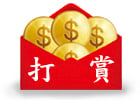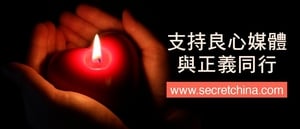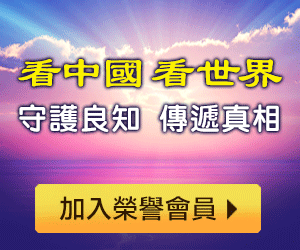韩国媒体The Korea Times:中国记者在G20上抢镜并遭抨击
北京 ——芮成钢, 中国国家电视台CCTV的一名记者,在赴韩国报道G20峰会的时候因其引争议的言论成为新闻亮点。
“我想我能代表全亚洲,”在上周的新闻发布会上,芮这样告诉奥巴马总统。当时作为美国国家元首的奥巴马说他能为作为东道主的韩国的媒体回答最后一个问题。
芮举起手,奥巴马还以为他是韩国人。“很不幸,不好意思让你失望了,奥巴马总统,我实际上是个中国人。”芮说。
奥巴马申明:“尽管如此,公平起见,我刚貌似已经说了要把这个问题留给韩国媒体。”
芮不折不挠:“我的韩国朋友们,你们同意由我代表你们来问这个问题吧?要得不?”
一轮叽歪后,奥巴马算球了没有再坚持。
这个插曲很快成为中国互联网上的一个热点事件。甚至比正在广州举办的亚运会还扯眼球。
中国记者、前哈佛大学曼尼学者安替都帮芮成钢感到无地自容,在他自己的FACEBOOK上,安替“代表”芮成钢道歉,他写道:“对不起,奥巴马及韩国的记者们。”
“他的行为实在是很不礼貌。我想他应该对奥巴马和韩国记者们道歉。”安替在接受记者采访时说。
“我光看着都觉得尴尬。他就像是在挑衅。”在北京驻站的加拿大Globe and Mail报记者Mark MacKinnon在采访中说。“这将奥巴马置于一个非常不爽的位置,貌似这样就逼他认可了中国或者说中国记者能替全亚洲的媒体人员说话一样。”
芮在2007年的时候,因为在博客上发起一场草根爱国运动而成名。当时他们要把美国的星巴克分店赶出北京历史性的紫禁城(故宫)。现在,那里在卖中国茶。
自然而然, 芮在某种意义上成为中国一个著名的爱国主义符号。也成为那些坚信西方在破坏中国崛起的爱国主义者们心目中英勇斗争的英雄。
有些中国人把在首尔上演的这一场幕解读为中国和美国力量角逐的象征。一个叫王子绯村(?)的人在博客上写:“美国经常说自己代表着世界的自由和民主,那为什么中国记者不能代表亚洲呢?”
“你们难道意识不到芮成钢是中国的骄傲吗?”一个读者在财新网上说。
有些芮的支持者说, 新闻业天然就是竞争性的职业, 他们辩称,芮成钢不过是在做他自己的工作而已。他们还说,他的做法在西方的新闻实践中也是广为接受的。
而加拿大记者MacKinnon却不这么认为。“这是不一样的。如果你是在新闻发布会的抢问模式下, 当然所有的记者就都有这种自由。你有时候还可以吼别人。但是,这是另外一种不同的情况。 在一个如此正式的国际性的新闻发布会上,特别是奥巴马总统都已经说了把这个问题留给主办国了,他竟然还跳出来坚持提问甚至还宣称自己代表了整个亚洲板块,实在是很失礼。”
“今年的早些时候,加拿大主办了G20.如果在当时,某一个总统把提问权交给加拿大记者,而另一个美国的记者却站起来说‘你知道我是在代表整个北美大陆提问’,那将会被认为是(对加拿大)严重的冒犯。”MacKinnon说。
在引爆舆论热议之后,芮成钢在他自己的博客上回应说,他并不比美国的记者更粗暴。“其实,提问对话美国总统不是什么大事儿,奥巴马几乎每天都会面对各种各样的挑战性甚至是进攻性的问题,这是他工作的一部分。”
然而,另外一个中国的博主则质疑:那芮成钢你在中国的领导人面前是不是也能这样做呢?“显然,他根本不敢”该博主说。
是他的过度自信,而并不是他提问的实际内容,让那些认为他自负而傲慢的人们无语了。一些批评者说,芮成钢是当下中国现实的一个剪影。具有矛盾的双重特征,一方面,自信心和力量都在增长,但是另一方面,却呈现出傲慢和嚣张跋扈的膨胀。
“中国的形象很不好,这已经是一个问题了,”芮成钢在去年曾经这样对美国媒体说过。然而,一些观察者认为,他自己正好就为这个问题的存在贡献出了一份力量。“芮成钢的言行或许会破坏中国记者乃至整个中国的国际形象。”环球时报的记者王Zhaokun如是说。
Chinese reporter at G20 steals show and slammed
By
Sunny Lee
BEIJING ― Rui Chenggang, a reporter with China’s state-controlled CCTV, went to Seoul to cover the G20 summit and became a news story himself due to his controversial remarks.
“I think I get to represent all of Asia,” Rui told President Barak Obama during a press conference last week, in an exchange with the American head of state, who said he would answer a final question from the press of Korea, the
host.
Rui raised his hand and Obama thought he was Korean. “Unfortunately, I hate to disappoint you, President Obama, I’m actually Chinese,” Rui said.
Obama clarified: “In fairness, though, I did say that I was going to let the Korean press ask the last question.”
Rui was unwavering: “Will my Korean friends allow me to ask a question on your behalf? Yes or no?”
After a round of exchanges, Obama relented.
The episode soon became an attention-grabber on the Chinese Internet, outstripping the popularity of the currently unfolding Asian Games in the southern city of Guangzhou.
Michael Anti, a Chinese journalist and a former Nieman fellow at Harvard University, felt so embarrassed by the episode that he posted an apology on Facebook on behalf of Rui. “Sorry, Obama and Korean journalists,” he wrote.
“It was an impolite move. I thought Obama and the Korean journalists deserved an apology,” he later said in an interview.
“Watching it, I felt very awkward. It almost seemed like he was trying to push confrontation,” said Mark MacKinnon, a Beijing-based correspondent for Canadian newspaper, the Globe and Mail, in an interview. “It put Obama in a very
uncomfortable spot for having to accept the premise that China could speak on behalf of, or Chinese reporters could speak on behalf of the Asian press corps.”
Rui became a celebrity figure in China in 2007 when his blog ignited a grass-roots patriotic movement that helped push
Starbucks, an American coffee brand, out of Beijing’s historic Forbidden City. Now, Chinese tea is served there.
Naturally, in some pockets of China, Rui is very popular as a symbol of patriotism and as a hero who stands against
the West, which they think is trying to undermine China’s rise.
Some Chinese saw a symbolic jostling of power between China and the U.S. in Seoul. A blogger named Wangzifeicun said: “America often says it represents freedom and democracy of the world. Why can’t a Chinese journalist represent Asia then?”
“Rui Chenggang is China’s pride. Can’t you realize that?” A reader on the website Caixin said.
Some supporters of Rui pointed out that journalism by nature is a competitive profession and argued that he simply did his job, adding that what he did was very much acceptable in Western practice.
MacKinnon, the Canadian journalist, doesn’t think so. “There is a difference. If you’re in a scrum, then it’s sort of free for all journalists. You sometimes shout over each other. But there is a different protocol. In a formalized press
conference, especially in an international press conference where Obama was giving a question to the host country, to jump up and insist to ask a question and also claim to represent the entire continent, was inappropriate.
“The G20 was hosted by Canada earlier this year. And if a president gave the question to a Canadian reporter, then an American stood up and say, ‘you know I speak on behalf of the North American continent,’ that would be very offensive,” MacKinnon said.
After the eruption of the controversy, Rui responded on his blog, saying he was no more aggressive than American journalists. “Actually, asking a question of an American president is not a big deal. Obama almost every day faces various challenging and even a (verbal) assault from journalists. This is part of his job.”
Yet a Chinese blogger challenged whether Rui would behave the same way in front of a Chinese president. “Certainly, he wouldn’t dare to,” he said.
It’s Rui’s over-confidence, not the substance of his question, that unnerved people who saw Rui as cocky and overbearing. Some critics say Rui is a vignette of today’s China, with two conflicting identities. On the one hand, it is increasingly confident and powerful, but on the other this is seen by some as increasingly being arrogant and domineering.
“China has a really bad image problem,” Rui told the American media last year. Some observers say he has contributed to it. “Rui’s behavior might undermine the image of Chinese journalists, or even that of China abroad,” said Wang Zhaokun, a journalist with the Global Times.
来源:开心网
短网址: 版权所有,任何形式转载需本站授权许可。 严禁建立镜像网站.
【诚征荣誉会员】溪流能够汇成大海,小善可以成就大爱。我们向全球华人诚意征集万名荣誉会员:每位荣誉会员每年只需支付一份订阅费用,成为《看中国》网站的荣誉会员,就可以助力我们突破审查与封锁,向至少10000位中国大陆同胞奉上独立真实的关键资讯,在危难时刻向他们发出预警,救他们于大瘟疫与其它社会危难之中。





